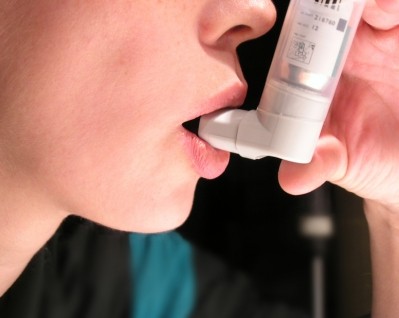‘Club together’ on nutritional solutions for air pollution, says DSM

Vitamin suppliers, governments, and health bodies need to club together to fund fresh research into possible nutritional solutions to combat the harmful impact of air pollution, according to a leading doctor at DSM’s nutritional division.
Speaking to NutraIngredients, Dr Peter Szabolcs, a principal scientist at the Human Nutrition and Health Research department at DSM Nutritional Products, said: “I think we have to join forces with different organisations who are targeting the health effects of air pollution.
“This field is quite a hot topic. Nutritional solutions could be a very important element to address the detrimental health effects of air pollution.”
Szbolcs called on vitamin suppliers, such as DSM, to join forces with an array of partners, including regulatory bodies and health bodies to see if fresh nutritional solutions can be found to combat the impact of air pollution on humans which research suggests is leading to more than 5.5m people globally dying prematurely every year.
Combination of vitamins might be solution
“Talking about the future, and the possible solutions I would say based on the current available data most probably a combination would lead to a powerful effect. Combining Vitamin B, C, D and E and also fatty acids could lead to a beneficial effect,” he said.
Earlier this year, researchers in the US found that high doses of vitamin B supplements may offer some protection against the detrimental impact of air pollution.
According to the World Health Organisation (WHO), over 90 percent of the world’s population live in areas where air pollution exceeds safety guidelines.
One of the pollutants which is considered the most dangerous is very fine particulate matter, known as PM2.5, where particles have a diameter which is less than 2.5 micrometres.
These particulates, which come from diesel cars and as a by-product of chemical reactions, can get trapped in the human lung and contribute to heart and lung issues.
“In an air polluted environment, a healthy diet with adequate intake of essential micronutrients may be critical to prevent the development of chronic diseases, particularly cardiovascular and pulmonary diseases,” Szabolcs told us.
“Moreover, increased intake of antioxidants, as well as other anti-inflammatory nutrients, may attenuate air-pollution induced oxidative stress and inflammation in chronic inflammatory diseases, thereby providing a useful addition to current disease management strategies.
“The potential public health and socio-economic benefits of establishing non-pharmacological approaches to disease management are enormous.”
Call for industry partners
Dutch vitamin giant DSM has been researching nutritional solutions in this area for some time but is now calling on other industry partners to join forces.
“We are actively looking for partners, for academic partners, for industry partners to engage in further research. Both in pre-clinical and clinical levels to show possible benefits on multiple levels,” Szabolcs said.
“Definitely more research is needed, more human trials are needed, because the pre-clinical studies are promising.”
He stressed that a focus for the research should be in parts of the world, where air pollution is particularly bad.








